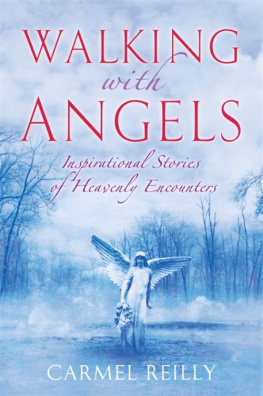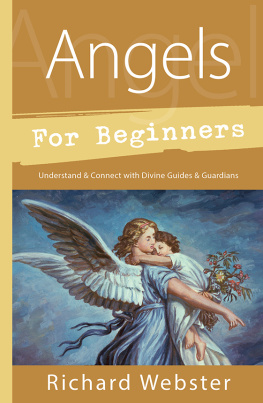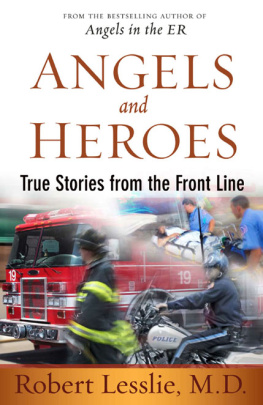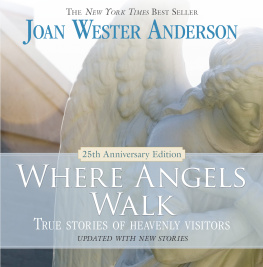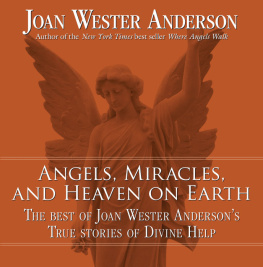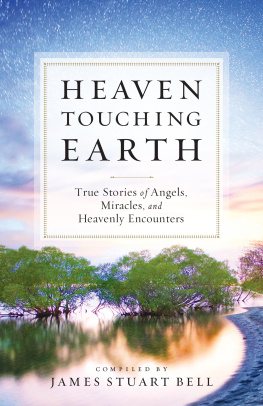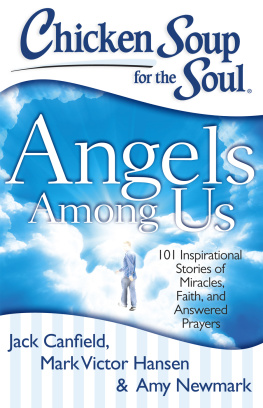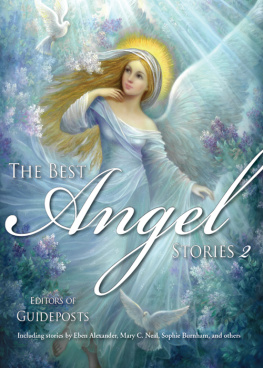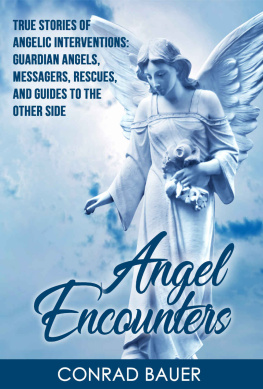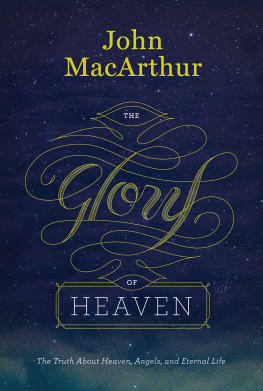What are Angels?
I have always been fascinated by angels, ever since I was very young. Several times as a child I had what I believe were encounters with spiritual beings, and ever since I have been certain that there are angels around us in the world today.
Last year I took out advertisements in a wide variety of publications and forums asking for people to send me accounts of their personal meetings with angels. I did this as part of my ongoing researches into the spiritual world. Most such appeals produce a fascinating response, but in this case the number of communications I received was simply overwhelming. I had thousands of emails, faxes and letters giving me all kinds of different stories and memories from around the world. I had some wonderfully interesting correspondences with the writers, many of whom were keen to give me as much detail as they could. In some cases I ended up speaking on the telephone or meeting up with the people involved, and a large number of the accounts included here are taken from interviews or telephone conversations in which they gave me more detail about their experiences. It was a moving and fascinating experience . As well as showing how strong the interest and belief in angels is, this experience reinforced my conviction that such a belief, one that cuts across all creeds and ages, cannot be without foundation.
Almost all religions in the world today have some accounts of angels. The Christian churches have always referred to angels both as divine messengers and as part of the heavenly host. Judaism, Islam, Buddhism and Hinduism have all had their own stories and interpretations of angels. And it is even more remarkable to observe that even the non-religious often have a firm belief in angels. The idea of angels is by no means restricted to those who have a firm religious faith.
Accounts of angels go far back into antiquity. They are referred to in the earliest books of the bible, and also in the most ancient scriptures of other religions. Im not certain that we can ever know all there is to know about angels. By their nature they are mysterious and unknowable, so it seems to me to be presumptuous to claim any knowledge that goes beyond mortal limits.
However I do believe that by collating the wide variety of historical sources, and by comparing and contrasting these, we can come to a reasonably strong intuition or idea of what angels are and how they relate to people. What I want to do in this book is share some of the first-hand accounts I have received of angels, and, by arranging these by subject, to comment on and speculate on what we can know about angels.
First of all I want to discuss a couple of the most common images and ideas of what angels really are.
Do Angels Have Wings?
The first thing to note is that angels are spiritual beings. It may be that they can take on earthly forms, and appear in the world we perceive, but they are fundamentally part of the spiritual world. Humans can have some perception of the world of spirit our minds have a spiritual aspect to them and we are able to receive divine or spiritual messages. But we live in the physical world with all its petty distractions and complications , whereas angels are pure spirit, and live partly in realms we cannot hope to perceive.
We often think of angels as having wings. But almost all references to angels in the Bible are to wingless beings who have taken on the form of a man. The only exceptions are the Cherubim and the Seraphim, who are described specifically as never leaving Gods side in heaven. A winged, female angel is mentioned only once in the Old Testament. Non-Christian mythology has rather more mentions of winged women and children as angels. Cupid is one example, with his wings and bow and arrow with which he shoots lovers.
Medieval and renaissance paintings, and Victorian ones that derived from them, often depicted angels as having wings. Why is this? What is clear from the many accounts people have of angels is that, while the traditional images of winged and gracious creatures resembling humans are sometimes how they are perceived, this is far from being the most common vision.
Different religions have viewed angels differently. The traditional image of the winged angel is one that arose over the centuries largely as a simple interpretation of the idea that angels are ethereal and able to fly. In fact the word angel-comes from the Greek angelos, which may well be a translation of the Hebrew word malakh, which means messenger. This etymology suggests a being who carries messages between the human world and other realms of existence. Angels are thus intermediaries between down here and up there. So what could therefore be more natural than to envision them as great winged beings?
But this is an artistic representation, one that is also influenced by early attempts to depict heaven in physical terms as a place in the sky. And other religions or other periods of Christianity have had different images of angels. It seems best to assume that, as spiritual beings, angels can be visible or invisible to people, and that when they are visible, the form they take can vary widely. If the person to whom they wish to make themselves known happens to be someone who will recognize them more easily in traditional form, perhaps this is what will happen. Others simply report seeing a white light, feeling a strong presence, or meeting a strange person or even animal who helped or communicated with them.
It is probably best to keep an open mind as to how angels will appear to us if we ever meet one. If they want you to know who they are, they will make themselves known, and it is only a closed mind that will fail to recognize an angelic meeting.
Do we Become Angels When we Die?
There are many vexed theological arguments to be had about the exact relationship between angels and humans. The idea that we become angels after we die is a relatively recent concept. Films such as Its A Wonderful Life have had a powerful effect in making popular the idea that there is continuity between the worlds of humans and angels. Frank Capra didnt invent this idea for the character of Clarence. It has been around in one form or other at least since a text called The Martyrdom of Polycarp from the early 2nd century AD. But sources such as the Bible also seem to show us that angels in fact predate people, and that there is no such thing as progress from the human state to an angelic state.
Another complication here is whether or not people have spirits that can persist after death. It may be that this is true, but that there is still a clear distinction between angels and human spirits. Certainly some of the accounts I have included in this book seem to me to be referring to something that is closer to a spirit or spirit guide than an angel.
I wouldnt presume to be able to finally clear up such an enduring uncertainty. But I would say this: my personal belief is that angels are a distinct kind of being to humans, and that even if our spirits survive in this world after our death (as opposed to surviving in an afterlife), this is a different phenomenon to meetings with angels. If you feel you have communicated with angels, or that you have been in touch with loved ones after their death, you will probably have your own opinions on this. But the weight of historical ideas and religious interpretation does tend towards the idea that angels and people are separate creatures, and that the relatively recent belief that people become angels after death is a misunderstanding.
Angels in the World
So what are angels, and why do they communicate with us? What seems certain from the quantity and detail of accounts and stories is that there is such a thing as an angel, and that this is a spiritual presence that can make itself known to people. Those who believe in religions will have their own views as to how angels relate to God. Presumably as spiritual creatures they are closer to him than people, and can act as messengers and agents of divine will. But beyond this, why do angels communicate with us?

